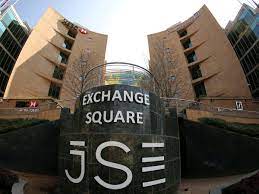Rand is down for the fourth day in a row. On Thursday, emerging market equities sank to their lowest level in more than a month on fears of a Chinese economic slowdown, while South Africa’s rand fell for the fourth session in a row due to disastrous floods and significant power outages.
The MSCI index of developing market stocks fell to levels not seen since mid-March, down 0.4 percent at the time.
China stocks led Asian markets lower as prolonged Covid-19 lockdowns prompted concerns about the impact on the country’s economy.
According to IMF Managing Director Kristalina Georgieva, a prolonged downturn in China would have significant global spillovers, but Beijing has room to change policy to provide support.
The IMF and World Bank’s semi-annual summit in Washington, where the Group of 20 (G20) finance ministers and central bank governors will debate the sluggish global economy in the aftermath of the Ukraine crisis, is in the spotlight.
Hawkish central banks, the Ukraine crisis, and increased volatility in developed economy bond markets have dampened interest in emerging market stocks, which are on course to fall for the fourth month in a row.
A surge in commodity prices triggered by Russia’s invasion of Ukraine has helped export-heavy emerging countries while putting pressure on those that rely on imports.
The rand, which gained more than 5% against the dollar last month, lost 1.1 percent on the day.
Fears of economic constriction were sparked by devastating floods in the KwaZulu-Natal province, as well as increased power outages by state utility Eskom. Flooding in KwaZulu-Natal last week damaged infrastructure to the tune of R10 billion ($660 million).
Despite the fact that Africa’s most industrialised economy is likely to profit from higher demand and improved trade conditions, alleviating the economic constraints produced by the floods poses a budgetary risk, according to Elisabeth Andreae, FX and EM analyst at Commerzbank.
South African stocks dropped 0.2 percent, while Russia’s rouble-denominated market index plummeted 1%.
The Russian rouble strengthened against the dollar in Moscow trade, with market participants keeping a careful eye on developments in Ukraine and any additional sanctions imposed by the West.
Russia’s central bank considered imposing foreign currency controls to prevent the rouble rate from deviating from official levels, while governor Elvira Nabiullina also stated that the central bank will explore decreasing the key interest rate from 17 percent at an upcoming board meeting.
A strengthening euro slashed the value of most emerging European currencies in Eastern and Central Europe.

































